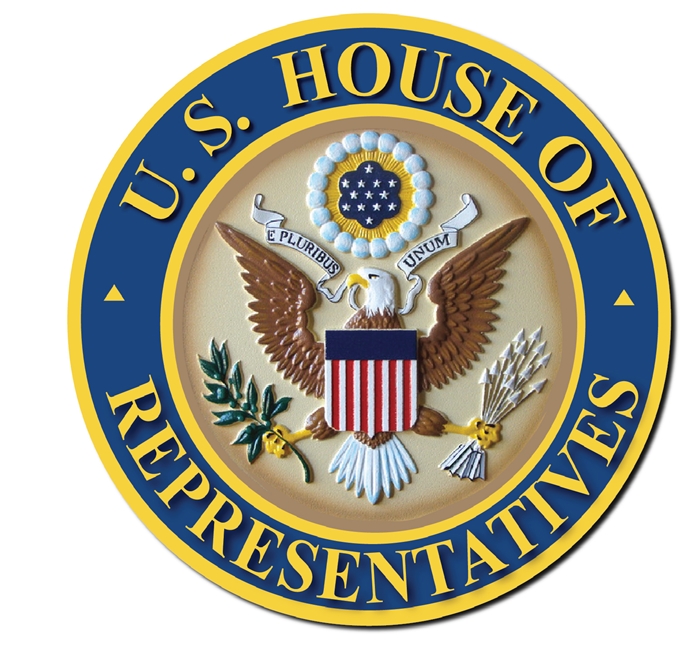Table Of Content

Seats vacated during a term are filled through special elections, unless the vacancy occurs closer to the next general election date than a pre-established deadline. The term of a member chosen in a special election usually begins the next day, or as soon as the results are certified. Under Article I, Section 2 of the Constitution, seats in the House of Representatives are apportioned among the states by population, as determined by the census conducted every ten years. Each state is entitled to at least one representative, however small its population. The makeup of the Rules Committee has traditionally been weighted in favor of the majority party, and has been in its current configuration of 9 majority and 4 minority members since the late 1970s. The Committee on Ethics has jurisdiction over the rules and statutes governing the conduct of members, officers and employees while performing their official duties.
Most Recent Votes

Bills typically take effect 90 days after the legislative session ends. Once in place, a law banning abortion after 15 weeks of pregnancy would prevail. Despite that high-level pressure, Republicans in the Arizona House blocked two previous attempts to vote to repeal the law. Last week, state House Speaker Ben Toma (R) urged his colleagues to slow down and carefully consider what he called a “very complicated topic.” On Wednesday, Toma lamented rushing the bill through the legislature. The Arizona House voted Wednesday to repeal a Civil War-era ban on nearly all abortions that is set to take effect as early as June 8. The measure now heads to the state Senate, which could grant final passage next week.
Member officials
The House will sometimes form a special or select committee for a short time period and specific purpose, frequently an investigation. All committees have websites where they post information about the legislation they are drafting. To be elected, a representative must be at least 25 years old, a United States citizen for at least seven years and an inhabitant of the state he or she represents. Information about travel-related expenses incurred by representatives who are reimbursed by non-government sources.
List of speakers of the United States House of Representatives
All representatives serve until the end of the current Congress on Jan 3, 2025. This article incorporates public domain material from websites or documents of the Federal government of the United States. The House has 435 members, the number representing each state is determined by population. HISTORY.com works with a wide range of writers and editors to create accurate and informative content. All articles are regularly reviewed and updated by the HISTORY.com team.
The House is also served by several officials who are not members. The House's chief such officer is the clerk, who maintains public records, prepares documents, and oversees junior officials, including pages until the discontinuation of House pages in 2011. The clerk also presides over the House at the beginning of each new Congress pending the election of a speaker. Another officer is the chief administrative officer, responsible for the day-to-day administrative support to the House of Representatives. Speakers serve as chairs of their party's steering committee, which is responsible for assigning party members to other House committees. The speaker chooses the chairs of standing committees, appoints most of the members of the Rules Committee, appoints all members of conference committees, and determines which committees consider bills.
US elections 2024: Eleven House races to watch - Reuters
US elections 2024: Eleven House races to watch.
Posted: Thu, 25 Apr 2024 19:49:00 GMT [source]
Los Angeles Unified School District (LAUSD) is the 2nd largest public school district in the United States. During the 2016–2017 school year, LAUSD served around 734,641 students, including 107,142 students at independent charter schools and 69,867 adult students.During the same school year, it had 26,556 teachers and 33,635 other employees. It is the second largest employer in Los Angeles County, after the County Government. Every LAUSD household or residential area is zoned to an elementary school, a middle school and a high school, in one of the eight local school districts. Each local school district is run by an area superintendent and is headquartered within the district. Even if the bill to repeal the 1864 law is approved by the Senate and signed by the governor, the near-total abortion ban could still take effect for several months.
The Constitution provides that the House may choose its own speaker.[50] Although not explicitly required by the Constitution, every speaker has been a member of the House. The Constitution does not specify the duties and powers of the speaker, which are instead regulated by the rules and customs of the House. Speakers have a role both as a leader of the House and the leader of their party (which need not be the majority party; theoretically, a member of the minority party could be elected as speaker with the support of a fraction of members of the majority party). Under the Presidential Succession Act (1947), the speaker is second in the line of presidential succession after the vice president.

Leadership List
Zelenskyy informed US House of Representatives Speaker that Ukraine would hold out without US assistance until April - Ukrainska Pravda
Zelenskyy informed US House of Representatives Speaker that Ukraine would hold out without US assistance until April.
Posted: Sat, 27 Apr 2024 10:42:05 GMT [source]
Two additional representatives were added temporarily after the admission of Alaska and Hawaii as states in 1959, but at the next legislative apportionment, membership returned to 435, the number authorized by a law enacted in 1941. The House of Representatives shares equal responsibility for lawmaking with the U.S. As conceived by the framers of the Constitution, the House was to represent the popular will, and its members were to be directly elected by the people.
Personnel, mail and office expenses
They may hold hearings on questions of public interest, propose legislation that has not been formally introduced as a bill or resolution, and conduct investigations. Among important standing committees are those on appropriations, on ways and means (which handles matters related to finance), and on rules. There are also select and special committees, which are usually appointed for a specific project and for a limited period.
Democrats put up a big vote — 174 — in favor of this bill, which was intended to sweeten the overall package for conservatives. While all Democrats voted in favor of aid to Ukraine and all but Ms. Tlaib supported funding to Taiwan, 37 left-leaning Democrats defected to vote against the Israel aid bill. They said before the vote that they opposed unfettered aid to Israel that could be used in its offensive in Gaza. The opposition to the Israel aid represented a minority of Democrats, but reflected the deep resistance to unconditional aid and the divisions in the party on Gaza. Representative Jamie Raskin of Maryland represented a notable new “no” vote among Democrats, and other standouts included Representatives Donald S. Beyer Jr. of Virginia, Earl Blumenauer of Oregon and John Garamendi of California. The House passed a long-stalled foreign aid package on Saturday that gives funding to Ukraine, Israel and Taiwan, with a majority of lawmakers backing money for American allies across the globe.
The speaker, committee chairs, and some other officials are generally from the majority party; they have counterparts (for instance, the "ranking members" of committees) in the minority party. The United States is divided into 435 congressional districts, each with a population of about 710,000 individuals. Each district elects a representative to the House of Representatives for a two-year term. Americans in the United States’s six territories are represented in the House of Representatives by an additional six non-voting delegates.
The Committee meets in the House chamber; it may consider and amend bills, but may not grant them final passage. Generally, the debate procedures of the Committee of the Whole are more flexible than those of the House itself. One advantage of the Committee of the Whole is its ability to include otherwise non-voting members of Congress. During debates, a member may speak only if called upon by the presiding officer. The presiding officer decides which members to recognize, and can therefore control the course of debate.[62] All speeches must be addressed to the presiding officer, using the words "Mr. Speaker" or "Madam Speaker".
The committees also play an important role in the control exercised by Congress over governmental agencies. Cabinet officers and other officials are frequently summoned before the committees to explain policy. The Constitution (Article I, section 6) prohibits members of Congress from holding offices in the executive branch of government—a chief distinction between parliamentary and congressional forms of government.
Some joint committees oversee independent government bodies; for instance, the Joint Committee on the Library oversees the Library of Congress. Other joint committees serve to make advisory reports; for example, there exists a Joint Committee on Taxation. Hence, the power of joint committees is considerably lower than those of standing committees. The CAO also assumed some of the responsibilities of the House Information Services, which previously had been controlled directly by the Committee on House Administration, then headed by Representative Charlie Rose of North Carolina, along with the House "Folding Room".
The chaplain leads the House in prayer at the opening of the day. The sergeant at arms is the House's chief law enforcement officer and maintains order and security on House premises. Finally, routine police work is handled by the United States Capitol Police, which is supervised by the Capitol Police Board, a body to which the sergeant at arms belongs, and chairs in even-numbered years.

No comments:
Post a Comment